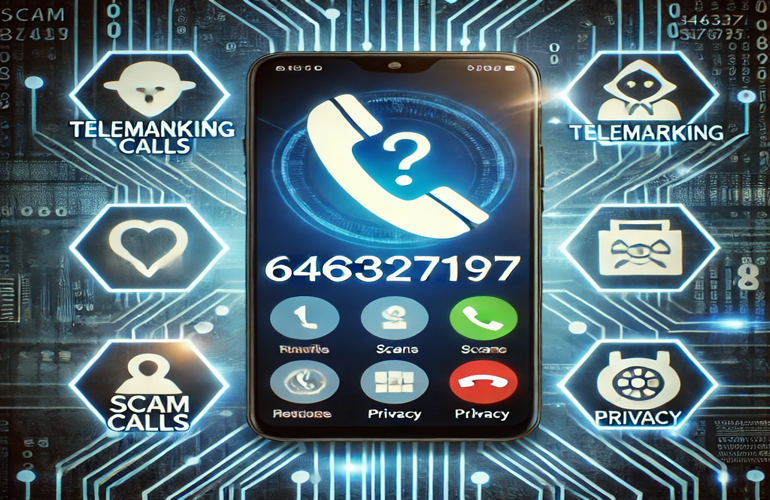
The number 6463276197 has sparked intrigue and curiosity among many. Its frequent appearances and associations have led to various interpretations and theories. This article explores the mystery behind 6463276197, examining its significance, cultural impact, and the many stories and myths surrounding it. From its historical background to its presence in modern technology, we’ll uncover what makes this number so fascinating. Whether you have encountered 6463276197 in your life or are just curious about its origins, this guide will provide insightful perspectives and real-life examples to satisfy your curiosity.
The Basics of Phone Numbers
Understanding Phone Numbers
Phone numbers are essential tools in modern communication, connecting individuals across the globe. Each number serves as a unique identifier that enables telecommunications networks to route calls and messages accurately. The structure of phone numbers varies by country but generally includes several key components.

The Significance of Area Codes
Area codes are integral to the phone numbering system. These prefixes identify specific geographic regions, helping route calls efficiently. In the United States, for instance, area codes are three digits long and precede the seven-digit local number. They enable long-distance calling and help distinguish between densely populated and rural areas. The implementation of area codes has expanded with the increase in demand for phone numbers, especially with the rise of mobile phones and internet-based communication.
The Structure of a Phone Number
The typical phone number structure includes an area code, a central office code, and a line number. For example, in the number 646-327-6197:
- 646: The area code, indicating a specific geographic region.
- 327: The central office code, also known as the exchange code, designating a particular telephone exchange within the area.
- 6197: The line number, a unique identifier assigned to an individual line within the exchange.
Exploring the Mystery of 6463276197
Common Associations
The number 6463276197 has become a subject of curiosity due to its frequent appearance in various contexts. People often encounter it in unexpected places, from random phone calls to digital media. This recurrence has led to numerous associations and speculations about its meaning and significance. Some view it as merely coincidental, while others attribute deeper significance, suggesting links to patterns or hidden messages.
Potential Sources of Calls
Understanding the origin of calls from 6463276197 can shed light on why this number stands out. It is often associated with telemarketing, scam calls, or automated systems. These calls can be frustrating and intrusive, leading many to question the legitimacy and purpose behind them. Investigating the origins involves looking into call logs, tracing the number back to known entities, and exploring possible motivations for using this specific sequence of digits.
Public Perception
The public perception of 6463276197 varies widely. For some, it represents annoyance and distrust due to its connection with spam or fraudulent activities. Others find it intriguing and delve into online discussions and forums to share their experiences and theories. This number has sparked debates and discussions, contributing to its enigmatic status. The mixed reactions reflect broader societal concerns about privacy, security, and the increasing prevalence of unsolicited communications.
Privacy and Security Concerns
Phone Number Privacy
Phone number privacy is an increasing concern in today’s digital age. With the proliferation of data breaches and unauthorized access to personal information, maintaining the confidentiality of one’s phone number has become more challenging. Phone numbers, once considered benign pieces of information, are now gateways to personal data and can be exploited by malicious actors. Guarding this information is crucial to protect against identity theft and other privacy invasions.
Protecting Your Phone Number
There are several strategies individuals can use to safeguard their phone numbers. One effective method is using secondary or disposable numbers for online activities, reducing the risk of exposing the primary number. Another approach involves adjusting privacy settings on social media and online accounts to limit the visibility of contact information. Awareness of phishing attempts and scam calls also plays a critical role in protecting one’s number. By being cautious and implementing these practices, individuals can significantly reduce the likelihood of their numbers being misused.
Legal and Regulatory Framework
The legal and regulatory framework surrounding phone number privacy is designed to protect consumers and enforce responsible practices by businesses and service providers. Laws such as the Telephone Consumer Protection Act (TCPA) in the United States restrict unsolicited calls and provide avenues for individuals to take action against violators. Regulatory bodies like the Federal Communications Commission (FCC) oversee the implementation of these laws and address complaints related to phone number misuse. These regulations aim to create a safer environment for phone users and hold offenders accountable.
The Impact of Unwanted Calls
Personal Impact
Unwanted calls, whether from telemarketers, scammers, or robocallers, can significantly disrupt daily life. These calls invade personal time, create unnecessary stress, and often lead to frustration. For individuals who rely on their phones for essential communication, constant interruptions from unsolicited calls can be particularly distressing. In severe cases, frequent unwanted calls may cause anxiety and lead people to avoid answering their phones altogether, impacting their social and professional interactions.

Economic Impact
The economic consequences of unwanted calls are substantial. Businesses face productivity losses when employees are distracted by spam calls during work hours. The time spent addressing these interruptions adds up, leading to decreased efficiency and increased operational costs. Additionally, individuals who fall victim to phone scams can suffer significant financial losses. Scammers use sophisticated techniques to deceive people, resulting in monetary theft and identity fraud. The broader economic impact includes the costs of implementing measures to combat unwanted calls, such as advanced call-blocking technologies and regulatory enforcement.
Social Impact
Unwanted calls also have broader social implications. They erode trust in the phone system, making people skeptical of answering calls from unknown numbers. This mistrust can extend to legitimate calls, affecting communication and connectivity within communities. Elderly individuals and vulnerable populations are particularly at risk, as they may be more susceptible to scams and less aware of how to protect themselves. The pervasive nature of unwanted calls can diminish the quality of life and contribute to a sense of insecurity and vulnerability among phone users.
Case Studies and Real-Life Examples
Case Study 1: The Telemarketing Menace
Telemarketing has long been a source of frustration for phone users. In one notable case, a large telemarketing company was found to have made millions of unsolicited calls to consumers. Despite regulations intended to curb such practices, the company exploited loopholes and continued its aggressive marketing tactics. Many recipients of these calls reported feeling harassed and overwhelmed, leading to increased scrutiny and eventual legal action against the company. This case highlights the persistent issue of telemarketing abuse and the ongoing need for effective enforcement of existing laws.
Case Study 2: Scam Victim Stories
Phone scams can have devastating effects on victims, both financially and emotionally. One high-profile scam involved fraudsters posing as IRS agents, threatening legal action unless immediate payment was made. Victims, often elderly individuals, were coerced into transferring large sums of money out of fear. In another instance, scammers used caller ID spoofing to appear as trusted organizations, convincing victims to divulge personal information. These stories underscore the sophistication of modern scams and the importance of public awareness and education to prevent such crimes.
Case Study 3: Business Practices
Businesses are not immune to the impacts of unwanted calls. A small business owner recounted how continuous robocalls disrupted daily operations, causing employees to waste valuable time answering and managing these calls. The influx of spam calls also affected the company’s reputation, as customers struggled to reach legitimate lines. In response, the business implemented advanced call-blocking technologies and reported the numbers to authorities. This case illustrates how unwanted calls can harm business productivity and reputation, and the steps that can be taken to mitigate these effects.
Technological Solutions
Caller ID and Call Blocking
Technological advancements have significantly improved the ability to manage and block unwanted calls. Caller ID systems allow users to see the incoming call’s number and sometimes the name associated with it. This feature helps users decide whether to answer a call. Enhanced caller ID services can also identify likely spam or scam calls, providing additional layers of protection. Call blocking technology, available through most phone service providers and third-party apps, enables users to block specific numbers or automatically filter calls identified as spam.

Spam Detection Algorithms
Spam detection algorithms are becoming increasingly sophisticated, using patterns and data analysis to identify and filter out unwanted calls. These algorithms analyze call metadata, such as frequency, duration, and origin, to detect suspicious activity. Machine learning models enhance the accuracy of these algorithms by continuously learning from new data, improving their ability to identify spam and scam calls over time. These technologies are integrated into many call-blocking apps and phone systems, offering an effective solution to reduce the incidence of unwanted calls.
Robocall Mitigation
Robocalls, automated calls often used for telemarketing or scams, are a significant concern for many phone users. Several technologies are being developed to mitigate robocalls, including protocols like STIR/SHAKEN, which authenticate the caller’s identity and ensure that the displayed caller ID is not spoofed. These protocols make it easier to trace the origin of the call and block fraudulent ones. Additionally, advanced robocall mitigation systems can detect and block calls that exhibit robocall patterns, such as a high volume of calls in a short period.
Conclusion
The number 6463276197 presents a unique case study in modern communication, highlighting both the fascination and frustration that phone numbers can evoke. From its mysterious associations and cultural impact to the significant privacy and security concerns it raises, this number encapsulates many of the challenges faced in today’s digital age. Examining the personal, economic, and social impacts of unwanted calls underscores the importance of technological and regulatory solutions.
As we continue to develop and implement advanced technologies like caller ID, spam detection algorithms, and robocall mitigation, we can better protect individuals and improve the overall phone communication experience. The journey of understanding and addressing the issues surrounding 6463276197 serves as a reminder of the ever-evolving nature of communication and the continuous effort required to safeguard our privacy and security.
FAQs
1. What is the significance of the number 6463276197?
The number 6463276197 has drawn attention due to its frequent appearance in various contexts. It is often associated with unsolicited calls and has become a topic of curiosity and investigation.
2. How can I protect myself from unwanted calls from numbers like 6463276197?
Protecting yourself involves using call-blocking technologies, adjusting privacy settings on social media, and being cautious about sharing your phone number. Additionally, staying informed about common scam tactics can help you avoid falling victim to unwanted calls.
3. Why do I keep receiving calls from 6463276197?
Calls from this number are often linked to telemarketing, scams, or automated systems. These calls are usually made to a large number of recipients in hopes of reaching a potential target.
4. What steps are being taken to address unwanted calls?
Various measures are in place to tackle unwanted calls, including legal regulations, technological solutions like spam detection algorithms, and call-blocking services. Authorities and tech companies continuously work to improve these measures and reduce the frequency of unwanted calls.
5. How can I report a suspicious call from 6463276197?
Suspicious calls can be reported to relevant authorities such as the Federal Communications Commission (FCC) in the United States. Many phone service providers also offer options to report and block unwanted calls directly through their services.







